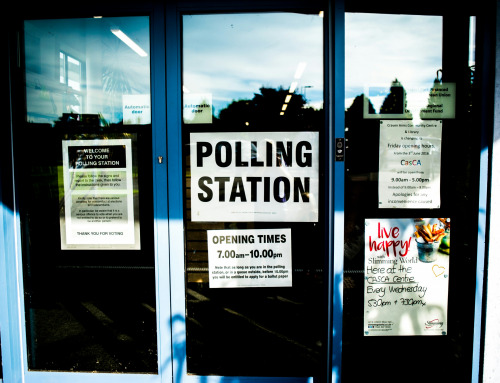It is amazing to think that a country as small as Scotland, in spite of the many trials and tribulations faced throughout its history, has left such a lasting impact on the world. From sporting heroes and inspiring writers to legendary warriors and tragic queens, Scotland’s countrymen and women, both past and present, continue to fascinate, inspire and leave their mark.
Let’s start with the big stuff. Leaders of the Reformation, the pioneering thinkers of the Scottish Enlightenment, trail-blazing captains of industry and intrepid explorers – all are individuals that Scotland can lay claim to, and their role in shaping how we think, see and experience the world today cannot be understated. And where on earth would we be without the ingenious inventors, scientists and engineers to whom we owe steam power, penicillin and the telephone? These are just a few of the ground-breaking technological innovations pioneered in Scotland.
Scotland is equally proud of its artistic and cultural heritage too, and justifiably so. The roster of great artists, poets, writers, actors, and musicians who hail from Scotland is long and continues to grow. This brings me to the point I was browsing the internet as you do when this article from 2009 in the Telegraph ( my favourite newspaper lol ) caught my eye. I saved it in one of my files and then came across it a few weeks ago, so I thought I would share it with you
“Wha’s like us? Damn few and they’re a’ deid”
My father often used to use this phrase as a toast, as he raised his glass to down a wee dram. But he always prefaced it with “Here’s tae us.” So from my recollection, it should have those three words at the beginning, if used as a toast.
Cheers!
Wi’ the requisite touch o’ Scots modesty
The article by Simon Heffer at The Telegraph where seems to be suggesting that the Scots in Gordon Brown’s government need to jump into the loch.
I didn’t bother to read all the comments, but I can guess, from both angles, that Mr Heffer might just have a point. Scots in that Labour government did seem rather disproportionate.
I thought I’d let you see this. These words used to hang around our kitchen, printed on a tea towel. I’ve managed to trace it online.
Oh, the ingenuity of we Scots.
Just a wee reminder, lads and lasses.
Wha’s Like Us – Damn Few And They’re A’ Deid
By Tom Anderson Cairns
The average Englishman, in the home he calls his castle, slips into his national costume, a shabby raincoat, patented by chemist Charles Macintosh from Glasgow, Scotland.
En route to his office, he strides along the quintessential English lane, surfaced by John Macadam of Ayr, Scotland.
He drives an English car fitted with tyres invented by John Boyd Dunlop of Dreghorn, Scotland.
At the train station, he boards a train, the forerunner of which was a steam engine, invented by James Watt of Greenock, Scotland.
He then pours himself a cup of coffee from a thermos flask, the latter invented by James Dewar, a Scotsman from Kincardine-on-Forth.
At the office he receives the mail bearing adhesive stamps invented by James Chalmers of Dundee, Scotland.
During the day he uses the telephone invented by Alexander Graham Bell, born in Edinburgh, Scotland.
At home in the evening his daughter pedals her bicycle invented by Kirkpatrick Macmillan, blacksmith of Dumfries, Scotland.
He watches the news on his television, an invention of John Logie Baird of Helensburgh, Scotland,
And an item about the U.S. Navy, founded by John Paul Jones of Kirkbean, Scotland.
He has by now been reminded too much of Scotland and in desperation he picks up the Bible only to find that the first man mentioned in the good book is a Scot, King James VI, who authorised its translation.
Nowhere can an Englishman turn to escape the ingenuity of the Scots.
He could take to drink, but the Scots make the best in the world.
He could take a rifle and end it all but the breech-loading rifle was invented by Captain Patrick Ferguson of Pitfours, Scotland.
If he escapes death, he might then find himself on an operating table injected with penicillin, which was discovered by Alexander Fleming of Darvel, Scotland.
Or under anaesthetic, which was discovered by Sir James Young Simpson of Bathgate, Scotland.
Out of the anaesthetic, he would find no comfort in learning he was as safe as the Bank of England founded by William Paterson of Dumfries, Scotland.
Perhaps his only remaining hope would be to get a transfusion of guid Scottish blood which would entitle him to ask “Wha’s Like Us”.
(Love the bit about “safe as the Bank of England”, don’t you?)
At the bottom of the tea towel is the Latin inscription “nemo me impune lacessit” which translates to “no one provokes me with impunity” which was the motto of the Order of the Thistle first used on the coins of King James VI of Scotland.
Perhaps Mr Heffer should retain this wee thought.
Of course, we could have rung up The Previous Prime Minister, Tony Blair, to try to dilute the Scottishness of the Cabinet.
Ooops … no we couldn’t.
Tony Blair was born in Edinburgh





Leave A Comment